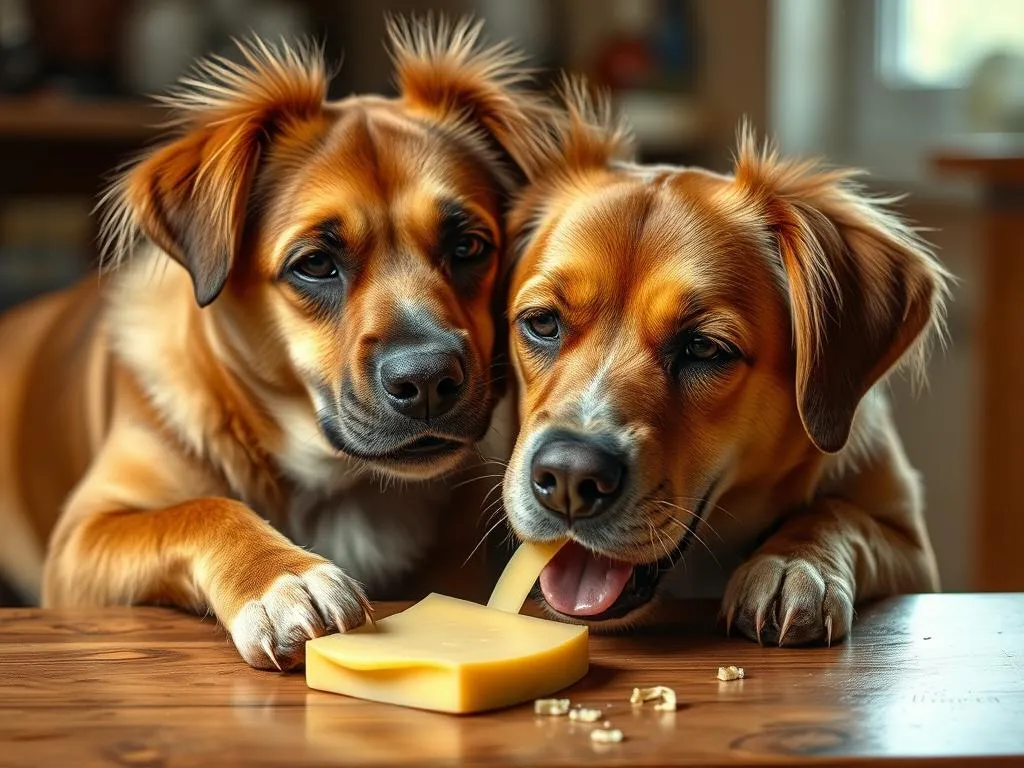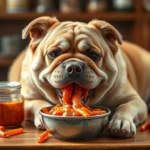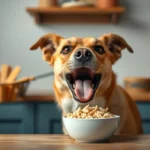
Introduction
Understanding dog nutrition is essential for ensuring the long, healthy life of our furry companions. Just like humans, dogs require a balanced diet that provides them with the necessary nutrients to thrive. One common question among dog owners is whether it’s safe to share human foods, particularly cheese, with their pets. In this article, we will explore the safety and nutritional implications of feeding provolone cheese to dogs. So, can dogs eat provolone cheese? Let’s find out.
Understanding Dog Nutrition
Basic Nutritional Needs
Dogs need a variety of nutrients to stay healthy, including:
- Proteins: Essential for growth, muscle development, and overall health.
- Fats: Provide energy and support cell function.
- Carbohydrates: Offer a quick source of energy and aid in digestion.
- Vitamins: Vital for metabolic processes and maintaining the immune system.
- Minerals: Essential for bone health and various bodily functions.
A balanced diet comprises the right proportions of these nutrients, tailored to a dog’s age, size, and health status.
Common Dietary Requirements by Dog Size and Age
Nutritional needs vary significantly across different life stages and sizes.
- Puppies require higher protein and energy levels to support rapid growth.
- Adult dogs need a well-rounded diet that maintains their health and energy levels.
- Senior dogs often require fewer calories but higher fiber to assist with digestion.
Additionally, small, medium, and large breeds may have different calorie requirements and food formulations to meet their unique needs.
The Role of Cheese in Dog Diets
Nutritional Benefits of Cheese
Cheese can be a nutritious addition to a dog’s diet. It is rich in:
- Calcium: Essential for bone health.
- Protein: Important for muscle development.
- Vitamins A and B12: Vital for overall health and energy levels.
Cheese can also serve as a tempting training treat, making it easier to reward dogs for good behavior.
Potential Risks of Feeding Cheese to Dogs
However, there are several risks associated with feeding cheese to dogs:
- Lactose Intolerance: Many dogs are lactose intolerant, meaning they cannot digest lactose, the sugar found in milk. This can lead to gastrointestinal upset, including diarrhea and gas.
- High-Fat Content: Some cheeses are high in fat, which can contribute to obesity and other health issues like pancreatitis if consumed in excess.
It’s crucial to consider both the benefits and risks before adding cheese to your dog’s diet.
Provolone Cheese: An Overview
What is Provolone Cheese?
Provolone is an Italian cheese made from cow’s milk. Known for its semi-hard texture and distinct flavor, it comes in two varieties: Provolone Dolce (mild) and Provolone Piccante (sharp). While it is a popular cheese for humans, it’s important to evaluate its suitability for dogs.
Nutritional Profile of Provolone Cheese
Provolone cheese has a unique nutritional profile:
- Calories: Approximately 98 calories per ounce.
- Protein: Around 7 grams per ounce.
- Fat: Approximately 7 grams, with about 4.5 grams being saturated fat.
- Lactose: Provolone contains lactose, but the amount varies between different cheese varieties.
Understanding these values can help dog owners make informed decisions about incorporating provolone cheese into their pet’s diet.
Can Dogs Eat Provolone Cheese?
Safety Considerations
When considering if dogs can eat provolone cheese, it’s essential to evaluate safety:
- Lactose Levels: Provolone cheese contains lactose, which can be problematic for lactose-intolerant dogs. If your dog has previously shown signs of lactose intolerance, it’s best to avoid feeding them provolone cheese.
- Individual Tolerance: Some dogs may tolerate small amounts of cheese without any issue. It’s essential to monitor your pet for any adverse reactions when introducing new foods.
Recommended Serving Sizes
If you choose to give your dog provolone cheese, moderation is key. A small piece as an occasional treat is generally acceptable for most dogs, especially if they have no lactose intolerance issues. A good rule of thumb is to limit cheese to no more than 10% of your dog’s daily caloric intake.
Alternatives to Provolone Cheese
Other Dog-Safe Cheeses
There are several types of cheese that are generally considered safe for dogs:
- Mozzarella: Lower in fat and lactose, making it a good option for many dogs.
- Cheddar: High in protein and calcium, but should also be given in moderation due to its fat content.
- Cottage Cheese: A low-fat, high-protein option that many dogs enjoy.
These cheeses can provide similar nutritional benefits without the potential risks associated with provolone.
Non-Dairy Treats
For dogs that are lactose intolerant or for owners seeking alternatives, numerous non-dairy options can be both safe and nutritious. Consider the following treats:
- Carrots: High in fiber and vitamins.
- Apples: A good source of vitamins A and C, but be sure to remove the seeds.
- Pumpkin: Great for digestion and rich in fiber.
These alternatives can provide a variety of tastes and textures while keeping your dog healthy.
Conclusion
In summary, while provolone cheese can be a delicious treat for some dogs, it is essential to consider individual dietary needs and potential lactose intolerance. Cheese can play a role in a dog’s diet, but it should be offered in moderation and not as a primary food source. Always consult with your veterinarian to determine the best dietary choices for your individual dog.
FAQs
Can all dogs eat provolone cheese?
Not all dogs can eat provolone cheese safely. Dogs that are lactose intolerant should avoid it, while others may enjoy it in moderation.
What should I do if my dog has an adverse reaction to cheese?
If your dog shows signs of gastrointestinal distress, such as vomiting or diarrhea, after eating cheese, discontinue feeding it and consult your veterinarian.
Are there any other human foods I should avoid giving my dog?
Yes, avoid foods like chocolate, grapes, onions, and garlic, as they can be toxic to dogs.
How can I tell if my dog is lactose intolerant?
Signs of lactose intolerance in dogs include vomiting, diarrhea, and gas after consuming dairy products. If you suspect lactose intolerance, consult with your veterinarian for further evaluation.









